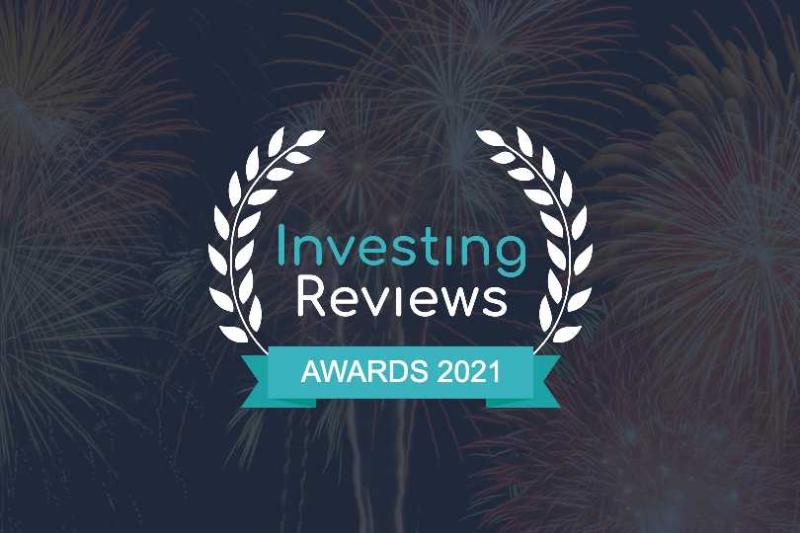
A month ago, I discussed the American Security and Exchange Commission’s (SEC) case against Ripple, who are accused of trading securities with the question: are cryptocurrencies securities? Since then, the SEC has issued warrants against Binance and Coinbase, and seem to be in full flow to stand up against the crypto trading industry and bring it down. It all comes down to what the US refers to as the Howey Test.
The Howey test came from a court case in the 1940s, SEC v. W.J. Howey Co., which established a “test” of whether something is a security and therefore whether it falls within the purview of securities regulation:
The test of whether there is an “investment contract” under the Securities Act is whether the scheme involves an investment of money in a common enterprise with profits to come solely from the efforts of others; and, if that test be satisfied, it is immaterial whether the enterprise is speculative or non speculative, or whether there is a sale of property with or without intrinsic value.
The test derived from an investment contract where William John Howey was a successful real estate developer based in Florida. In 1914, he began buying land in Lake County for $8 to $10 an acre which he cleared and planted with citrus trees. Howey kept some of the citrus groves for his own use and sold off the rest.
By the early 1940s, his company was able to sell land planted with two year old trees for $750 an acre but, as part of the sale, it would offer to lease back the land via a service contract which gave the company the right to work the land and market the produce. Attracted by the promise of returns of 10% a year for ten years, and the hospitality they enjoyed at a company-owned resort hotel, investors piled in: around 85% of the acreage sold was leased back. In theory, buyers could have farmed the citrus groves themselves, but most lacked the agricultural skills to do so.
The SEC contended that the service contracts constituted securities and, as no registration statement had been filed, Howey’s company was in violation of securities laws. This one went all the way up to the Supreme Court with the SEC coming out victorious.
Over the years, other esoteric assets have been scrutinised under the Howey test … and the authority of the SEC derives from the Securities Act of 1933, sometimes referred to as the “truth in securities” law. The objective of the law is to protect investors by imposing a certain level of disclosure on issuers and outlawing deceit and misrepresentation. To accomplish this, the SEC requires all securities to be registered. Hence the need for a Howey test – it’s not always obvious what a security is.
Fifty years later, the SEC is waging the same war. The issue today is whether cryptocurrencies are securities. If they are, then they are subject to a completely different American regulatory regime to those of digital currencies.
This question is up for grabs as Ripple, Binance, Coinbase and other exchanges are being served court notices by the Chair of the SEC, Gary Gensler. Marc Rubenstein has written a great insight into what’s going on at Net Interest, which I’ve copied here to record the analysis. If you have interest in this subject, then I suggest you click on the link to find out the full picture.
Commissioners of the SEC have long held the view that crypto assets are securities. Current chair Gary Gensler said in a speech last year, “My predecessor Jay Clayton said it, and I will reiterate it: Without prejudging any one token, most crypto tokens are investment contracts under the Howey Test.”
Over the past several years, the SEC has gone after individual crypto projects. In total, it has accused 54 crypto assets of being securities. But there are around 25,500 crypto assets in existence, so even though the focus has been on large ones – covering around 10% of the market – it’s a painful process.
Last week, the SEC changed course. In separate cases against crypto exchanges Binance and Coinbase, it added 16 more digital assets to its list of likely securities but rather than going after them, it went after the exchanges that provide a venue for them to trade. “The crypto assets it [Coinbase] has made available for trading…have included crypto asset securities, thus bringing Coinbase’s operations squarely within the purview of the securities laws.” By not registering as an exchange or broker, Coinbase is deemed in violation of such laws.
Coinbase was always cognisant of the risk. When it registered its own securities ahead of a Nasdaq listing two years ago, its disclosures stated:
We have policies and procedures to analyse whether each crypto asset that we seek to facilitate trading on our platform could be deemed to be a “security” under applicable laws… Regardless of our conclusions, we could be subject to legal or regulatory action in the event the SEC, a foreign regulatory authority, or a court were to determine that a supported crypto asset…is a “security” under applicable laws.
[W]e could be subject to judicial or administrative sanctions for failing to offer or sell the crypto asset in compliance with the registration requirements, or for acting as a broker, dealer, or national securities exchange without appropriate registration. Such an action could result in injunctions, cease and desist orders, as well as civil monetary penalties, fines, and disgorgement, criminal liability, and reputational harm.
But then they also stated that “many of our employees and service providers are accustomed to working at tech companies which generally do not maintain the same compliance customs and rules as financial services firms. This can lead to high risk of confusion…” So who knows?
If it loses its case, it’s bad news for Coinbase. In the first quarter of this year, 46% of the company’s transaction revenues came from crypto assets other than Bitcoin and Ethereum (Gary Gensler recognises that Bitcoin is not a security), equivalent to 22% of total revenues.
In addition, The SEC targets the company’s “staking” program, in which investors’ crypto assets are transferred to and pooled by Coinbase and subsequently “staked” (or committed) in exchange for rewards, which Coinbase distributes pro-rata to investors after paying itself a commission. The SEC deems the staking program to be an offer of securities – another violation. In the first quarter, 10% of the company’s total revenues came from staking. In combination, 32% of Coinbase revenues are at risk, which could be closer to two-thirds of earnings given the higher margins on these revenue lines.
Coinbase could always register with the SEC of course, but it’s not easy. Few crypto firms have been successful. So it’s fighting.
Coinbase’s position is that the Howey test does not apply to secondary market trading. “Howey is inapposite to the secondary market trading of digital assets,” it declares. It seems a bit of a stretch to suppose that once something is a security it’s not always a security, but I’m no lawyer. And as for the SEC’s claim that staking constitutes an offering of securities, Coinbase argues that the program fails to meet the threshold of the Howey test along each of its dimensions: investment of money, common enterprise, and profits coming solely from the efforts of others.
As Howey did all those years ago, Coinbase has threatened to take this case all the way to the Supreme Court. But another case may set a precedent. In December 2020, the SEC filed an action against Ripple Labs, alleging that it raised over $1.38 billion through an unregistered securities offering of its digital asset XRP. Ripple was launched in 2012 as a system to facilitate cross-border financial transactions – “a replacement for SWIFT” – and XRP is the token it uses for payments. The company maintains that XRP is not a security and has said it will spend $200 million on its defence.
As in its Coinbase case, the SEC leans heavily on Howey. It notes that although the Howey case was a long time ago, the Supreme Court made clear that the definition of whether an instrument is an investment contract and therefore a security is a “flexible rather than a static principle, one that is capable of adaptation to meet the countless and variable schemes devised by those who seek the use of the money of others on the promise of profits.”
Ripple’s claim is that XRP doesn’t pass the test. It takes each of its dimensions in turn:
For the SEC to prevail in its opposition, the Court would have to endorse the SEC’s theory that there can be an “investment contract” without any contract, without any investor rights, and without any issuer obligations. It would have to endorse the SEC’s theory that there can be a “common enterprise” even if the SEC can not say what the enterprise is or prove any of the elements that define such enterprises. And it would have to endorse the SEC’s theory that purchasers could reasonably have expected profits from Ripple’s efforts even though Ripple never promised to make any efforts, even though it expressly disavowed any obligation to do so, and even though profits were overwhelmingly due not to Ripple’s efforts, but to market forces.
…The SEC’s position boils down to a view that any time someone buys an asset hoping to make money, and the seller’s interests are even partly aligned with the buyer’s, it is a security subject to registration. That is not the law, even if the seller uses the sales proceeds to run its business. If Congress wants to expand the securities laws that way, it can do so; but this Court should not.
The future of crypto in America may yet be decided by Congress, but failing that it will be up to the courts to determine whether a 75+ year old test is as pertinent today as it was when it was devised. Coinbase is ready for the fight. “I’m optimistic, and I think we hope we’re doing a service for the industry and for America here,” said CEO Brian Armstrong this week.
I find the activities of Gesler and the SEC fascinating but ill-founded. Personally, the Howey test does not apply to cryptocurrency exchanges in the same way as other securities. In fact, I don’t think crypto assets are securities. Do you?
There’s also an interesting nuance here as Coindesk claim that the SEC’s actions may also be illegal because, on June 2, the House Financial Services Chair Patrick McHenry and Agriculture Committee Chair Glenn Thomspon released a collaborative draft bill called the Digital Asset Market Structure and Investor Protection Act. The bill includes a safe harbour for non-security cryptos under $75 million market cap, and for limited sales to non-accredited investors. It also aims to clarify registration procedures for crypto exchanges, and even includes a plan for “progressive decentralization” that would allow assets to transition from security to commodity status over time.
These specifics are bad for the SEC’s case against Coinbase, since they address many of the precise issues the SEC claims the law already covers. But the bill’s very existence may be an even bigger problem for Gensler than its details, both legally and in the court of public opinion, as the bill demonstrates an ongoing process of crypto market legislation, creating at least the appearance that Gensler is taking actions to bypass Congress.
Meantime the European Union has taken a different approach with the Markets in Crypto-Assets (MiCA) regulations adopted in May.
MiCA aims to protect investors by increasing transparency and putting in place a comprehensive framework for issuers and service providers including compliance with anti-money laundering rules. The rules cover issuers of utility tokens, asset referenced tokens and so-called ‘stablecoins’. It also covers service providers such as trading venues and the wallets where crypto-assets are held. This regulatory framework aims to protect investors, preserve financial stability, while allowing innovation and fostering the attractiveness of the crypto-asset sector.
It also introduces a harmonised regulatory framework in the European Union which, given the global nature of crypto markets, is an improvement compared to the current situation with national legislation in some member states only.
#watchthisspace
Chris M Skinner
Chris Skinner is best known as an independent commentator on the financial markets through his blog, TheFinanser.com, as author of the bestselling book Digital Bank, and Chair of the European networking forum the Financial Services Club. He has been voted one of the most influential people in banking by The Financial Brand (as well as one of the best blogs), a FinTech Titan (Next Bank), one of the Fintech Leaders you need to follow (City AM, Deluxe and Jax Finance), as well as one of the Top 40 most influential people in financial technology by the Wall Street Journal's Financial News. To learn more click here...





















